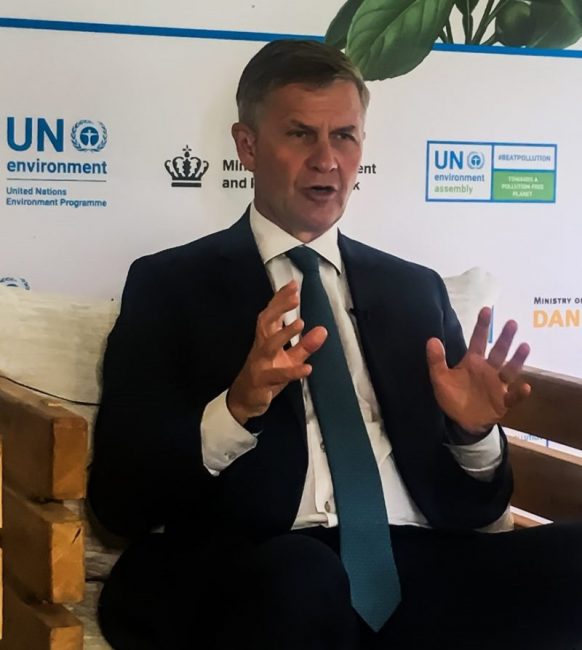Benin and Samoa have become the latest Parties to endorse the Kigali Amendment, bringing the total number of nations who have ratified the alteration to the Montreal Protocol to 30.

The 30 parties, listed alphabetically, are: Australia, Benin, Canada, Chile, Comoros, Côte d’Ivoire, Democratic People’s Republic of Korea, Ecuador, Finland, Gabon, Germany, Ireland, Lao People’s Democratic Republic, Luxembourg, Malawi, Maldives, Mali, Marshall Islands, Micronesia (Federated States of), Netherlands, Norway, Palau, Rwanda, Samoa, Slovakia, Sweden, Trinidad and Tobago, Togo, Tuvalu and the United Kingdom of Great Britain and Northern Ireland.
Sweden’s ratification last November of the treaty, which aims to bring about a global phase-down of hydrofluorocarbons (HFCs), ensured the pact will now enter into force with effect from January 1, 2019.
Head of the UN Environment, Erik Solheim, in a message, remarked: “Congratulations to the Governments of Benin and Samoa for ratifying the Kigali amendment to the Montreal Protocol! Every country in the world must act to stop the rapid growth of emissions from these powerful greenhouse gases.”
EU Commissioner for Climate Action and Energy, Miguel Arias Cañete, said: “The Kigali Amendment is proof of the global resolve to tackle climate change and shows what we can achieve when we work together. For Europe, implementation of our commitment will not only help us to meet our climate objectives but will also create new opportunities for European manufacturers of air conditioning and refrigerants.”
The Amendment was adopted by the 28th Meeting of the Parties to the Montreal Protocol on October 15, 2016 in Kigali, Rwanda. Under the Amendment, all countries will gradually phase down HFCs by more than 80 per cent over the next 30 years and replace them with more planet-friendly alternatives.
Developed countries will start reducing HFCs as early as 2019, while developing countries will start later. Phasing down HFCs under the Protocol is expected to avoid up to 0.5°C of global warming by the end of the century, while continuing to protect the ozone layer.
All prior amendments and adjustments of the Montreal Protocol, which marked its 30th anniversary in 2017, have universal support.
Implementation of the agreement is expected to prevent up to 80 billion tonnes CO2 equivalent of emissions by 2050, which will make a significant contribution to the Paris Agreement objective to limit the global temperature rise to well below 2°C.
Further benefits may be achieved by exploiting synergies with energy efficiency in the transition to alternative new technologies. Observers believe that the 30-year-old Montreal Protocol has been somewhat successful in protecting the Earth’s ozone layer, and the Kigali Amendment will allow it to make a wider and important contribution to global efforts to mitigate climate change.
The EU is said to be leading global efforts to limit emissions of HFCs and other fluorinated greenhouse gases. Its 2014 regulation on fluorinated gases will ensure that the EU can meet its obligations under the Kigali Amendment while also driving innovation in the field.
HFCs are synthetic substances which are mainly used mainly in refrigeration and air-conditioning equipment, as well as for propellants in foams. Their global warming effect is up to 15,000 times greater than that of carbon dioxide. The use of HFCs use is the fastest growing source of greenhouse gas emissions worldwide, although the EU’s own emissions recently fell for the first time in almost 15 years.
